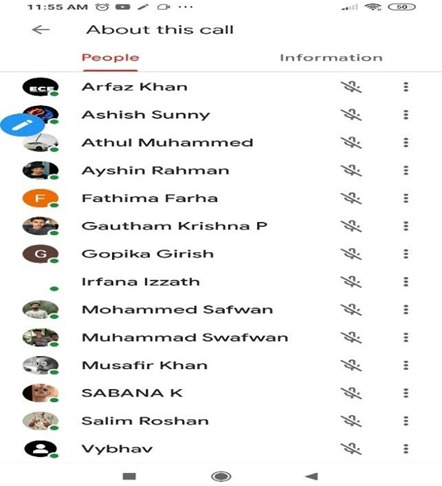USE OF VARIOUS INSTRUCTIONAL METHODS AND PEDAGOGICAL INITIATIVES
Faculties use various Pedagogical initiatives which include Demo, presentations, video lecturing and interactive teaching methods with real world illustrations methodologies to create the best learning environment wherever required. The faculty members prepare lesson plans, presentations, and make available course materials for the allocated subjects. Pedagogical methods have greater influence on students to improve their learning abilities. The department set up some of the pedagogical methods to make teaching and learning at the best level.
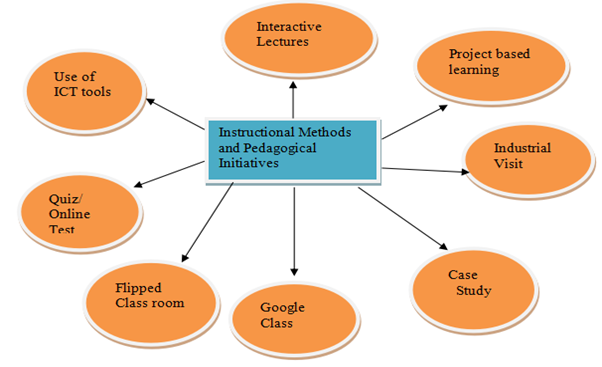
Computer Science and Engineering Department
- Interactive Lectures
- Faculty incorporates engagement triggers in interactive lectures.
- Engage students by finding ways for them to interact with the content.
- Students can participate in the activities.
- Students can apply what they have learnt.
- Project Based Learning
- Students learn by actively engaging in real-world and personally meaningful projects.
- Implementation of the concept in the project is promoted.
- The students are grouped and faculties are assigned to groups.
- The faculty will help the students to attain their goal.
- Real-world problems can be solved by project-based learning.
- In the curriculum of APJ Abdul Kalam Technological University, there is a mini project and main project.
- Industrial Visit
- Field visits are organized regularly to support curriculum delivery.
- Industrial visits help the students to gain knowledge in the industries.
- Case Studies are used to provide students an application of engineering knowledge.
- Helps in bringing the understanding of a complex issue or object.
- Flipped Class room
- In a flipped classroom, students watch online lectures, collaborate in online discussions, or carry out research at home while engaging in concepts in the classroom with the guidance of a mentor.
- Students discuss the topic and faculty members ask probing questions.
- Teachers can spend less time on introducing new topics.
FDP Report on INTEGRATING PEDAGOGY IN TEACHING LEARNING PROCESS click here
Pedagogical Initiatives and Innovative Teaching Report click here
INDUSTRIAL VISIT
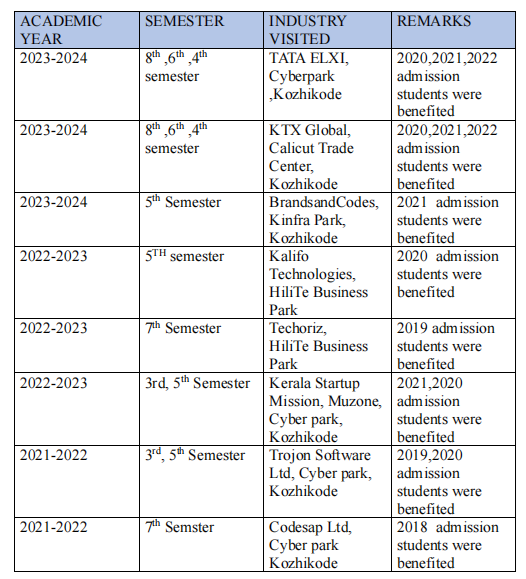
INDUSTRIAL VISIT 2020- 2024 BATCH
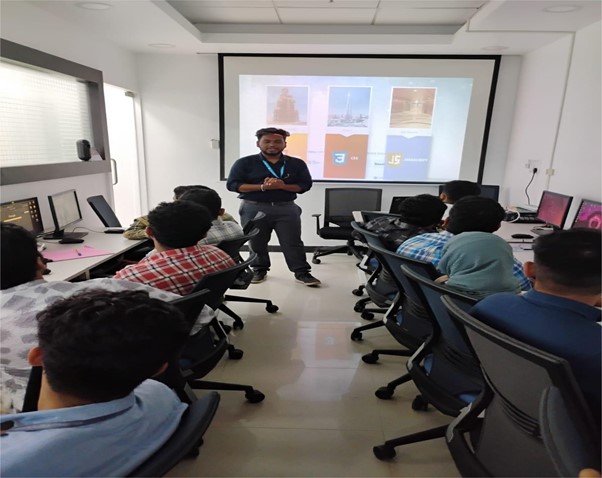
INDUSTRIAL VISIT 2021-2025 BATCH
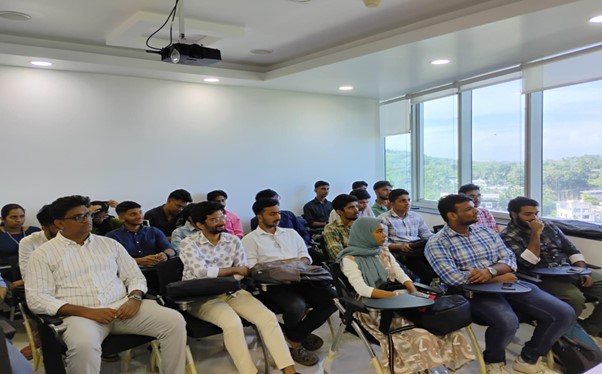
INDUSTRIAL VISIT 2022-2026 BATCH
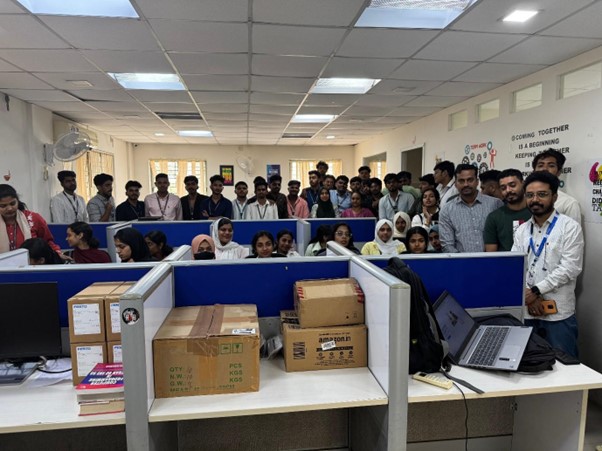
GOOGLE CLASSROOM
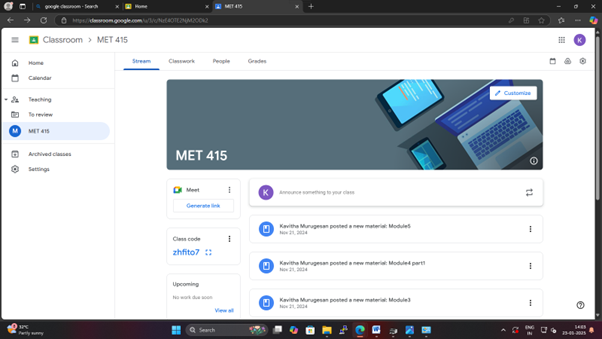
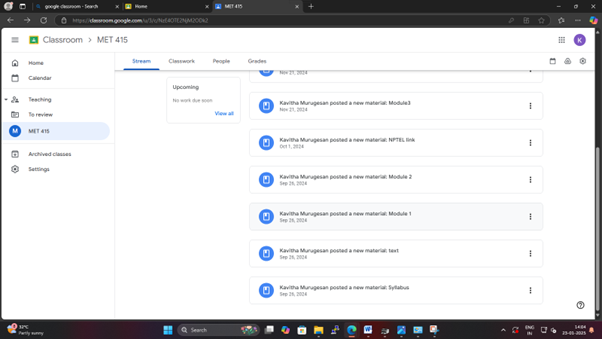
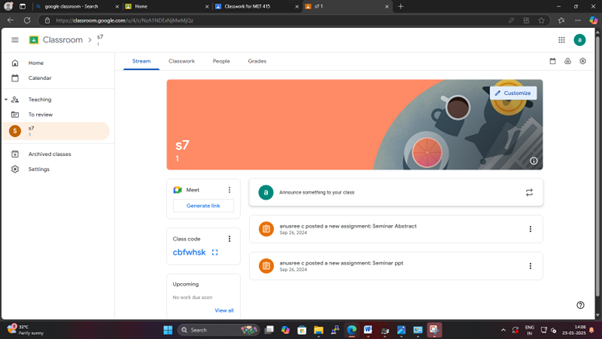
ICT TOOLS
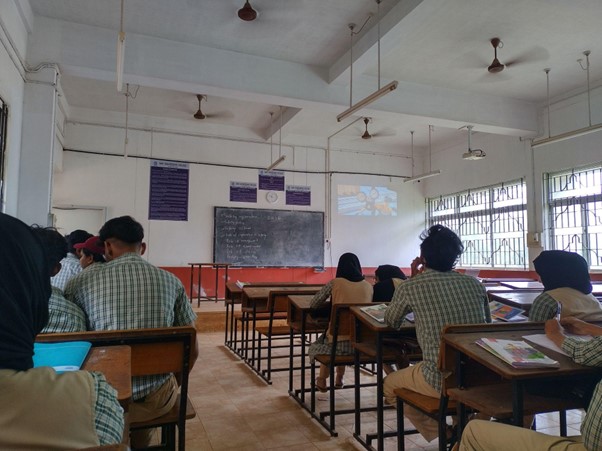
INTERACTIVE LECTURES ROLE PLAY BASED ON DEADLOCK
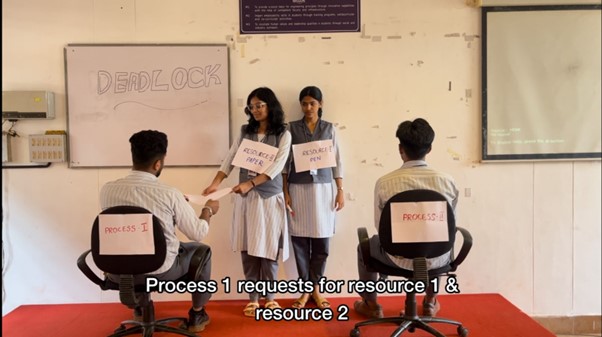
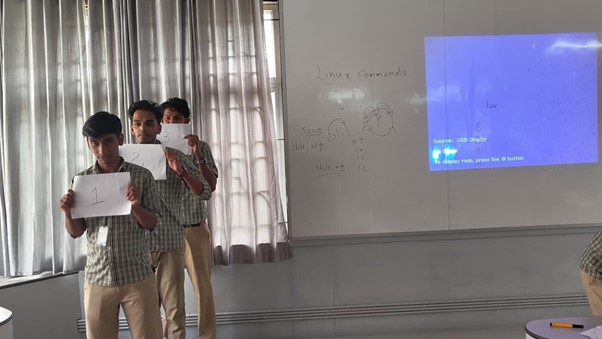
PROJECT BASED LEARNING
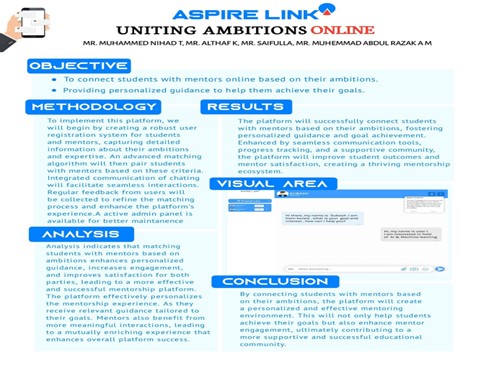
PROJECT BASED LEARNING
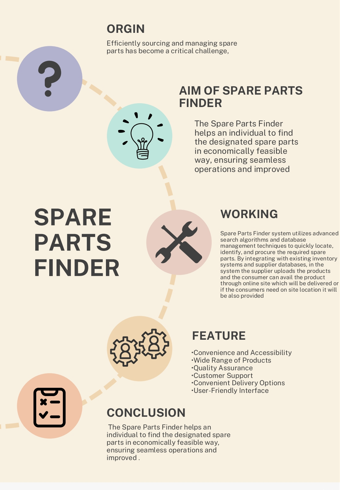
Group study
Peer teaching
Group discussion
Artificial Intelligence and Data Science
IT Workshop
Engineering Graphics
Python and DataScience Workshop


DEPARTMENT OF ELECTRICAL & ELECTRONICS ENGINEERING
PEDAGOGICAL INITIATIVES & INNOVATIVE TEACHING-LEARNING PROCESSES ADOPTED
Effective teaching often involves a combination of multiple methods that promote active engagement, critical thinking, and deep understanding. Apart from the regular teaching learning process, innovative pedagogical initiatives can bring drastic changes in it
Activities before adopting Innovative practices
- Preparing a proper course plan.
- Planning different Instructional methods including pedagogical methods to deliver the content for each hour.
- Searching online content that supports the syllabus.
- Mentoring students and making them aware of innovative practices.
- Grouping students for peer learning.
- Grouping students (Weaker and Brighter) for remedial measures.
Innovative Practices adopted
- Blended learning approach.
- Flipped classroom.
- ICT Enabled classes.
- Peer group learning.
- Seminar and Self-study.
- Real-world application.
- Case Study.
- Conducting viva /quiz.
- Using demos/Models.
- Group discussions.
- Modern tool usage-Simulation.
BLENDED LEARNING APPROACH
Along with normal lectures, students were complemented with online videos (NPTEL, YouTube videos), multimedia presentations, and recorded videos etc. This approach aimed to cater to diverse learning styles and provide students with a more holistic understanding of engineering concepts. It also helped students to learn in their own pace.
YOUTUBE LINKS
BASIC ELECTRICAL ENGINEERING (Handled by P.Fathima Sapna)
Elementary Generator
AC phasor representation
AC through pure R
AC through pure L
AC through Pure C
AC through pure RL Circuit
ACthroughpureRCCircuit
AC through RLC circuit
Concept of Power and Power Factor in AC circuit
Problems from Single phase AC
Three Phase AC and its generation
Three phase- Star and delta connection
POWER SYSTEM-1 (Handled by P.Fathima Sapna)
Introduction about the course
HydroElectricPowerPlant
Thermal power plant
Nuclear Power Plant
Renewable energy resources
Economics of Power Generation
Problems on Economics of power generation
Inductance of single-phase two-wire transmission line
Inductance for unsymmetrical spacing
ELECTROMAGNETICS (Handled by Jasmine P)
Co-ordinate system:
Biot Savat law
ADVANCED CONTROL THEORY (Handled by Jasmine P)
Describing function analysis and Stability
First method of Lyapunov
Construction of phase trajectory using isocline
CIRCUITS & MEASUREMENTS LAB (Handled by Jasmine P)
Strain gauge
Thermo couple
MICROPROCESSOR AND MICROCONTROLLER (Handled by Jasmine P)
POWER ELECTRONICS (Handled by Jasmine P)
ANALOG ELECTRONICS (Handled by Shalet PAbraham)
NPTEL CONTENT SHARED
LIFE SKILLS (Handled by Rajani V R)
Lecture class on effective communication
Stress management
Introduction to leadership
Body language
SYNCHRONOUS AND INDUCTION MACHINE (Handled by Rajani V R)
ELECTRICAL SYSTEM DESIGN & ESTIMATION (Handled by Rajani V R)
FLIPPED CLASSROOM
This innovative teaching approach reverses the traditional learning environment by delivering instructional content outside of the classroom and using class time for interactive, collaborative learning activities. The necessary reference material in the form of text, online links, etc was provided to them. Students were also asked to search and refer to different sources prior to attending the class. In the class, a numerical problem/ topic is chosen and students are asked to discuss and find solutions on the basis of learning they did. The teacher just played the role of motivator.
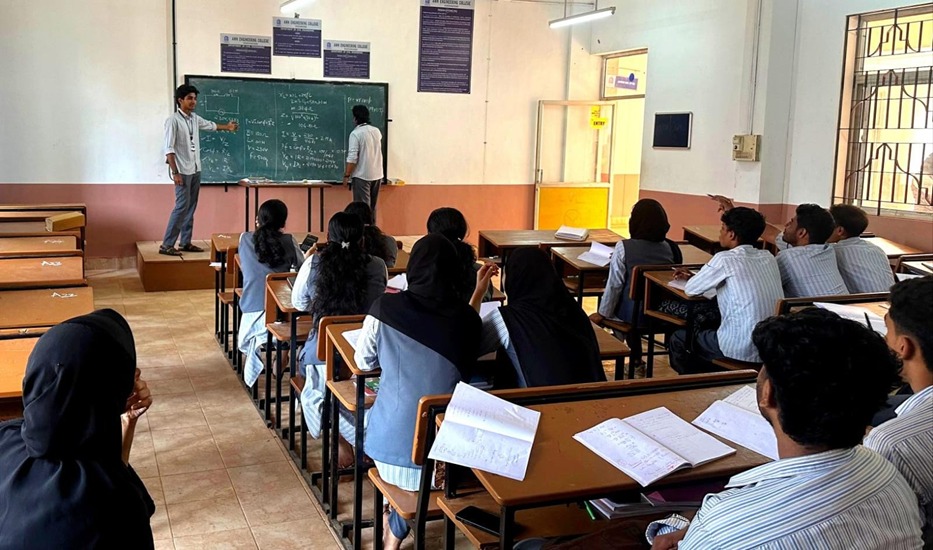
Demonstration of the Flipped classroom
ICT ENABLED CLASSES
ICT-enabled classes refer to educational environments where Information and Communication Technology (ICT) tools and resources are integrated into the teaching and learning process. This can include the use of various technologies such as computers, tablets, interactive whiteboards, educational software, online resources, and internet-based communication tools. These tools are used to enhance the learning experience, support teachers, and engage students in more dynamic, interactive, and personalized ways. Power points and illustrative videos were used to deliver content to Students. Google Classroom & GOOGLE MEET classes were conducted.
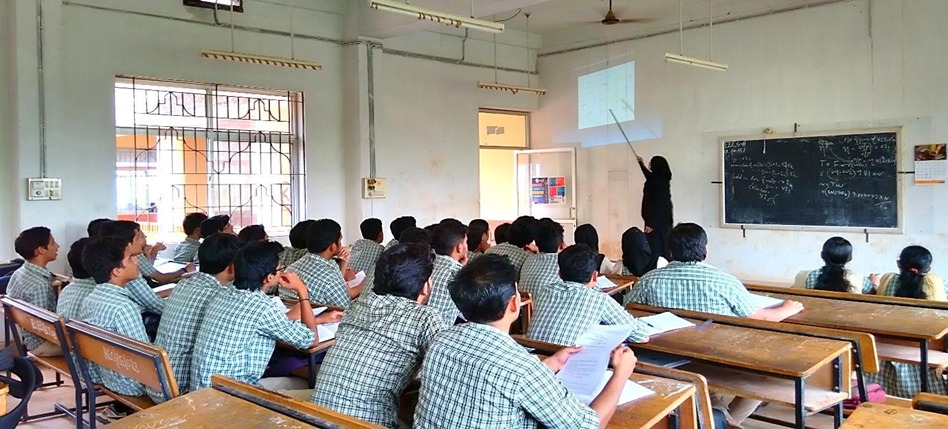
ICT Enabled Classroom
Google Meet
Google Classrooms
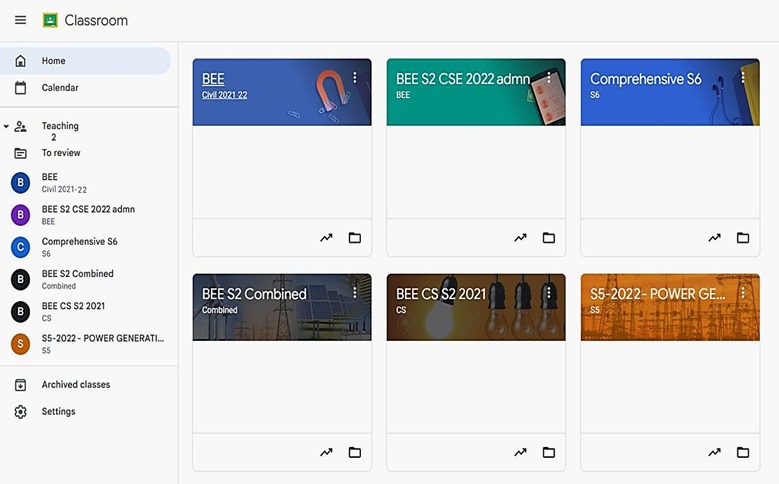
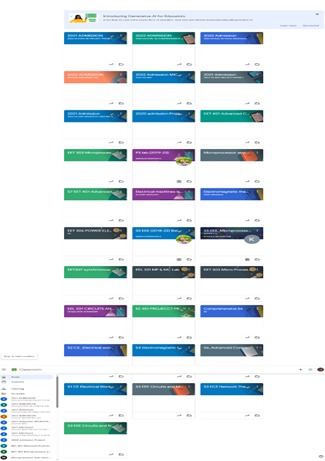
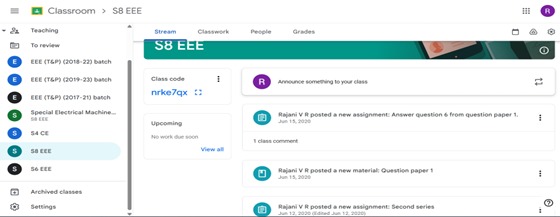
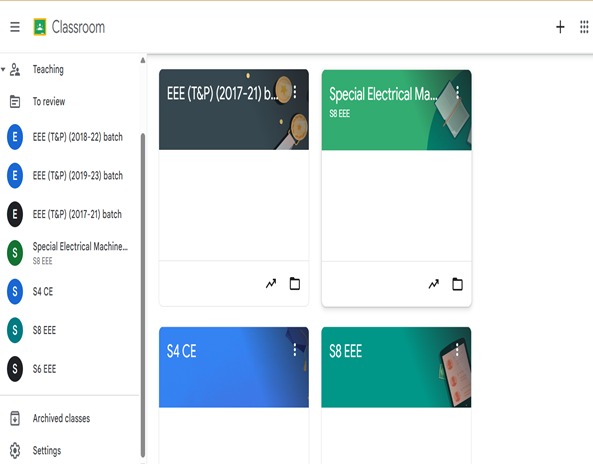
PEER LEARNING
Peer learning refers to a collaborative teaching approach in which students work together to help each other understand the material. Teaching others requires students to explain concepts in their own words, which reinforces their own understanding. Students become active participants in their learning process, rather than passive receivers of information. Peer learning creates a sense of community, where students feel comfortable sharing ideas and asking questions without fear of judgment.
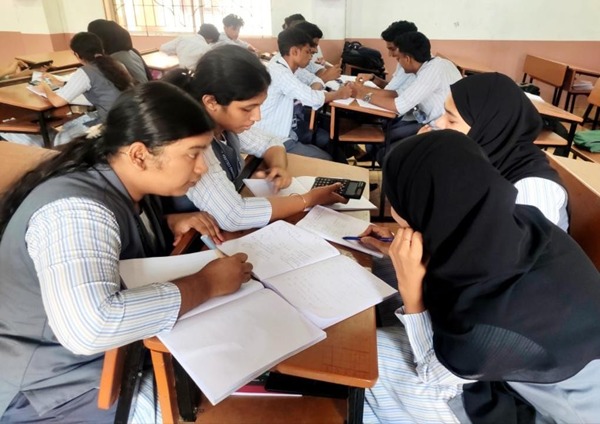
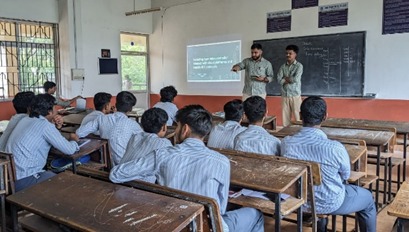
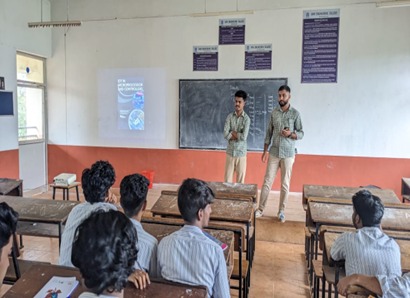
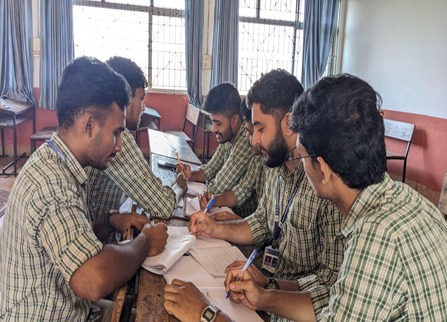
Group Learning
SELF-STUDY AND SEMINAR
Self-study encourages students to take responsibility for their learning by independently exploring and studying course material outside the classroom. This method promotes autonomous learning and self-discipline. Self-study requires students to plan their study sessions, set goals, and evaluate their progress. Students can focus on areas where they need more help, allowing for a more tailored learning experience. It allows students to study at their own pace and in their preferred environment, accommodating different learning styles and schedules.
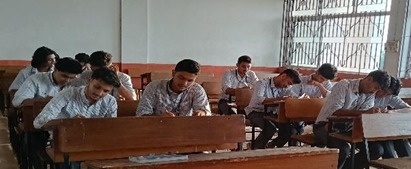
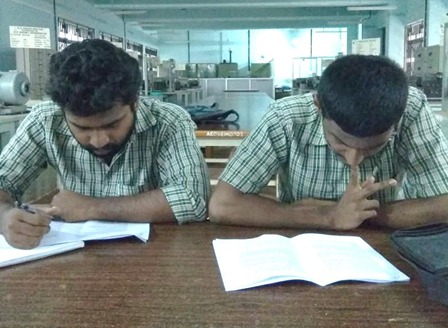
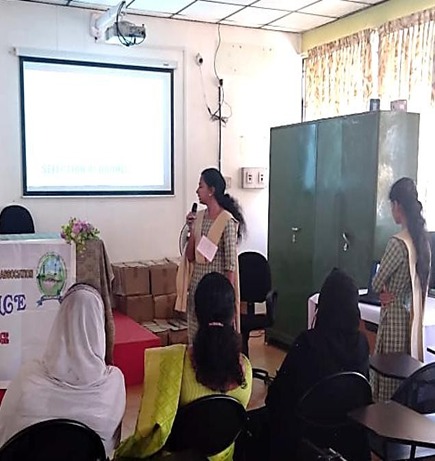
REAL-WORLD APPLICATION
Students were given exposure to real-world applications. For example, industrial visits to substations provided students with real-world exposure to power system operations, bridging theoretical knowledge with practical applications.
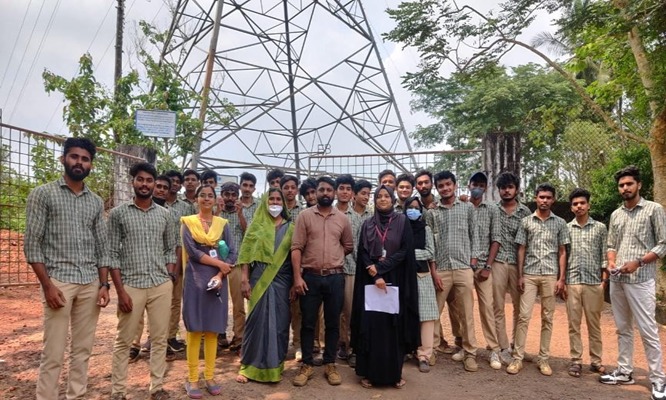
Visit to Kunnamangalam GIS Substation
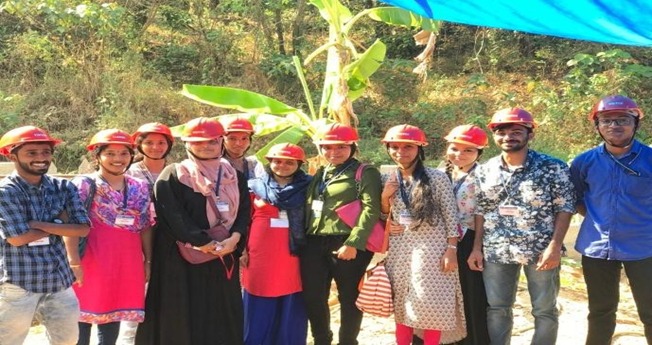
Visit to Kakkayam Small Hydro Electric Project
CASE STUDY
Practical application of concepts in real-world scenarios was emphasized, encouraging students to develop problem-solving skills and critical thinking.
a) EET 301- Power system 1 - Case study
b) EST 130- Basic Electrical - Case study
CONDUCTING VIVA/QUIZ
Quizzes are conducted to reinforce conceptual understanding and encourage active learning.
USING MODELS/DEMOS
Models encourage students to actively participate in the learning process. Instead of passively receiving information, students interact with the model, make observations, and test hypotheses. These models help simplify complex concepts, foster problem-solving, and engage students in a more interactive and immersive learning experience.
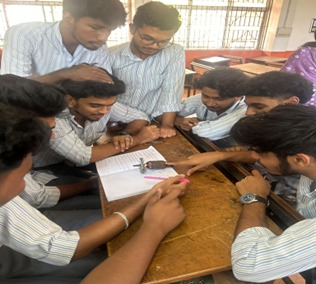
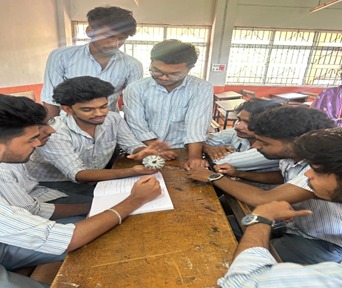
GROUP DISCUSSIONS
A group discussion is a collaborative learning technique in which students or participants discuss a particular topic or issue in a group setting. This method encourages active participation, critical thinking, and the exchange of ideas among group members. It can be used in a variety of educational settings to enhance learning outcomes, build communication skills, and foster deeper understanding of complex topics.
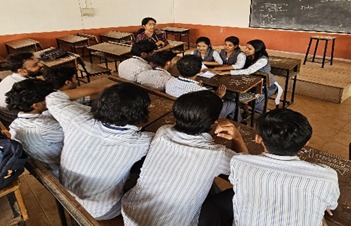
Group Discussion 1

Group Discussion 2
MODERN TOOL USAGE
The use of modern tools enhances hands-on learning, effectively bridging theory with practical applications. Exposure to software like MATLAB Simulink and Electrical CAD enables students to simulate and analyze power system behavior in real-time, strengthening their conceptual understanding.
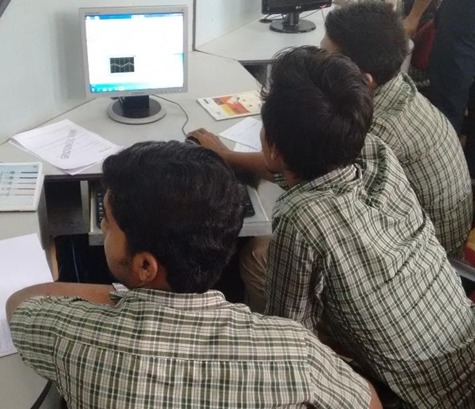
Electronics & Communication Engineering
Civil Engineering
The faculty members are focused on Outcome-based Education (OBE) and actively employ the OBE system to address students' learning needs through creative approaches. Within the department, faculty members embrace diverse innovative Teaching & Learning methods, aiming to foster an optimal learning environment for students.
The following are the different instructional methods adopted by the faculties of the Civil Department:

Various instructional methods and pedagogical initiatives
Interactive lectures
During the class, the faculty briefly introduces the topic for the lecture by mentioning real-world examples/context of the topic with respect to Civil Engineering applications. By means of interactive lectures, the topic is gradually introduced to the students, making them interested in learning various topics in the subject. Interactive lectures also facilitate Active Student Engagement by actively involving students in their own learning, such as answering questions, contributing to discussions, and engaging in problem-solving tasks.

Instructional methods and pedagogical initiatives-Eg. Interactive Lectures _Sample 1
Academic Year: 2024-2025, Semester: 3rd (ODD Sem)
Course Name: CET 205 Surveying and Geomatics
Faculty Name: Dr. Devika Babu
● By using powerpoint presentations, real-world examples/ images/photos/videos of relevant topics are disseminated to the students.

Instructional methods and pedagogical initiatives-Eg. use of ICT in classroom _Sample 1
Academic Year: 2024-2025, Semester: 1st (ODD Sem)
Course Name: GCEST104 Introduction to Civil Engineering
Faculty Name: Ms. Rishana Ismail


Instructional methods and pedagogical initiatives-Eg. use of ICT in classroom _Sample 2
Academic Year: 2024-2025, Semester: 8th (EVEN Sem)
Course Name: CET464 Air Quality Management
Faculty Name: Dr. Devika Babu
● Physical models of some systems are also used as teaching aids by faculties. All these measures will make students more knowledgeable about various topics.


Instructional methods and pedagogical initiatives-Eg. use of Physical models in classroom_Sample 1
Academic Year: 2024-2025, Semester: 1st (ODD Sem)
Course Name: GMEST103 Engineering Graphics and Computer Aided Drawing
Faculty Name: Ms. Sumeera K.
Google Classrooms
During the Covid-19 pandemic period, classes were held via Google Classrooms. Delivering all relevant course materials, recordings of important topics, and submission of student assignments were performed systematically via Google Classroom.


Instructional methods and pedagogical initiatives-Eg. Google classroom _Sample 1
Academic Year: 2021-2022, Semester: 7th (ODD Sem)
Course Name: CE401 Design of Steel Structures,
Faculty Name: Ms. Priyanka Dilip P.


Instructional methods and pedagogical initiatives-Eg. Google classroom _Sample 2
Academic Year: 2021-2022, Semester: 3rd (ODD Sem)
Course Name: CEL 201 Civil Engineering Planning and Drafting Lab
Faculty Name: Ms. Anila S.
Tutorial based learning
As per the syllabus of the respective courses, hours are allocated in the class timetable for conducting tutorials on a weekly basis. This helps students become more confident in solving problems, especially in problematic or design subjects.


Instructional methods and pedagogical initiatives-Eg. Tutorial Based Learning _Sample 1
Academic Year: 2024-2025, Semester: 3rd (ODD Sem)
Course Name: CET 201 Mechanics of solids
Faculty Name: Ms. Jisha P
Flipped classroom/Group based learning
During the course some topics are identified Topics are assigned to a group of students for collaborative learning. Students learn these topics as a group and present them to the class, enhancing their self-learning abilities, presentation, and teamwork skills. In some courses, flipped classroom techniques are adopted, where students prepare course content at home at their own pace and present or solve numerical problems on the topic during class time.

Instructional methods and pedagogical initiatives-Eg. Flipped classroom_Sample 1
Academic Year: 2023-2024, Semester: 8th (EVEN Sem)
Course Name: CET464 Air Quality Management
Faculty Name: Dr. Devika Babu



Instructional methods and pedagogical initiatives-Eg. Flipped classroom Sample 2
Academic Year: 2024-2025, Semester: 2nd (EVEN Sem)
Course Name: PCCET205 Mechanics of Solids
Faculty Name: Ms. Jisha P.

Instructional methods and pedagogical initiatives-Eg. Flipped classroom Sample 3
Academic Year: 2024-2025, Semester: 8th (EVEN Sem)
Course Name: CET464 Air Quality Management
Faculty Name: Dr. Devika Babu
Project based learning

We conducted an engaging session on Project-Based Learning (PBL), an innovative educational approach that empowers students to tackle real-world challenges and projects, integrating academic concepts into practical applications. The session was expertly led by our esteemed alumna, Ms. Hiba Parveen S, who shared her industry insights as a practicing Structural Engineer. Her real-world expertise brought valuable context to the discussion, enriching the learning experience for our students.
Academic Year: 2024-2025, Semester: 5th (Odd Sem)
Course Name: CET301 Structural analysis I
Faculty Name: Ms Jisha P
Student Seminar presentations

Instructional methods and pedagogical initiatives-Eg. Student Seminar Sample 1
Academic Year: 2024-2025, Semester: 5th (ODD Sem)
Course Name: CET309 Construction Technology and Management
Faculty Name: Ms. Mufeeda N.K.

Instructional methods and pedagogical initiatives-Eg. Student Seminar_Sample 2
Academic Year: 2024-2025, Semester: 6th (EVEN Sem)
Course Name: CET304 Environmental Engineering
Faculty Name: Ms. Mufeeda N.K.

Instructional methods and pedagogical initiatives-Eg. Student Seminar_Sample 3
Academic Year: 2024-2025, Semester: 8th (EVEN Sem)
Course Name: CET456 Repair and Rehabilitation of Buildings
Faculty Name: Ms. Priyanka Dilip P.
Seminar Presentations



Lab based learning (computer lab- regular lab hours)

Regular lab hours - GE Lab

Regular lab hours - GE Lab
Pedagogical initiatives & innovative teaching-learning processes adopted
This report outlines the pedagogical and innovative teaching-learning strategies I have implemented to enhance student engagement, strengthen conceptual understanding, and improve academic performance through interactive and technology-driven approaches.
Instructor Information
Name: Sruti Sudevan
Designation: Associate Professor
Courses: 20MCA102 ADVANCED DATABASE MANAGEMENT SYSTEM
Innovative Practices
- Flipped classroom
- ICT Enabled classes
- Peer group learning
- Self-study
- Real-world application
- Case Study
Blended Learning Approach
Beyond traditional lectures, students engaged with a dynamic blend of online resources, including NPTEL and YouTube videos, multimedia presentations, and personally recorded lectures. This multifaceted approach catered to diverse learning styles, deepened their grasp of engineering concepts, and empowered them to learn at their own pace, ensuring a more flexible and immersive educational experience..
Examples of YOUTUBE videos created by me for the Course:
NPTEL Video links
ICT Enabled Classes
PowerPoint presentations and illustrative videos were used to deliver content to students.
Animated Videos
Enhancing Conceptual Understanding Through Visual Learning
Google Classroom
Google Classroom optimizes the teaching process by facilitating seamless communication, efficient assignment management, and streamlined resource sharing. Its interactive features enhance student engagement, provide real-time feedback, and improve accessibility, fostering a more effective and dynamic learning environment.


Few Powerpoint links

Peer Group Learning
Encouraged as a powerful tool for collaborative knowledge exchange, peer group learning promotes dynamic discussions, problem-solving, and concept reinforcement. This approach cultivates critical thinking, strengthens teamwork, and deepens understanding through active engagement and shared insights.

Tutorial

Tutorial Discussion

Self Study

Group Study
Case Study
Emphasis was placed on applying concepts to real-world scenarios, fostering the development of problem-solving skills and enhancing critical thinking abilities among students
These are the few pedagogical initiatives which I have adopted for handling this courses to make it more interactive, understand the concepts clear and improve their critical thinking to solve the real time problems more effectively.
Sruti Sudevan
Associate Professor,
Department of Computer Applications
PEDAGOGICAL INITIATIVES & INNOVATIVE TEACHING-LEARNING PROCESSES ADOPTED
Pedagogical initiatives and innovative teaching-learning processes focus on enhancing student engagement and understanding through modern methodologies. These include active learning, flipped classrooms, blended learning, and technology integration. Personalized learning, project-based assignments, and experiential education foster critical thinking and problem-solving skills. Such approaches aim to create a dynamic and interactive learning environment.
Peer Learning
Peer learning is a collaborative approach where students actively learn together and from one another. It strengthens critical thinking, communication, and teamwork through discussions, group projects, and mentoring. By promoting active participation and knowledge-sharing, this method deepens understanding. Additionally, it boosts confidence and reinforces learning through peer interaction.




Peer Learning Sessions
Students collaborating in small groups to solve problems and share knowledge.
Self-Study
Self-study is an independent learning approach where students take responsibility for their own education. It encourages critical thinking, problem-solving, and time management skills by allowing learners to explore topics at their own pace. This method fosters deeper understanding and long-term retention through research, reading, and self-assessment. It also promotes self-discipline and a lifelong learning mindset.

Independent Learning
Student engaged in self-directed study session.
Group Discussions
Group discussions are an interactive learning method where students exchange ideas, and analyze concepts. This approach enhances critical thinking, communication, and problem-solving skills through active participation. It encourages collaborative learning, helping students gain diverse viewpoints and deeper subject understanding. Additionally, it fosters confidence and improves articulation of thoughts.

Classroom Discussion
Students actively participating in topic discussion.
ICT Enabled Classes
ICT-enabled classes integrate technology into the teaching-learning process to enhance engagement and comprehension. They utilize digital tools such as multimedia presentations, and online resources for interactive learning. This approach promotes flexibility, accessibility, and a deeper understanding of concepts through visual and auditory aids. It also fosters digital literacy and enhances the overall learning experience.
a)PPT
A PowerPoint Presentation (PPT) is a visual tool used to enhance learning and communication through structured slides. It allows the integration of text, images, charts, and multimedia to present information effectively. PPTs improve engagement, retention, and clarity in classrooms, meetings, and seminars. They are widely used for lectures, project reports, and interactive learning sessions.
Examples:-
b)Google Classroom
Google Classroom is a digital learning platform that facilitates online teaching, collaboration, and assignment management. It streamlines communication between teachers and students by providing a centralized space for sharing resources, submitting work, and receiving feedback. The platform supports interactive learning through features like quizzes, discussions, and real-time grading. It enhances organization, accessibility, and engagement in both online and blended learning environments.




Google Classroom
Google Classroom interface showcasing assignments, resources, and feedback.
Google Meet
Google Meet is a video conferencing platform that enables virtual communication and collaboration. It supports online classes, meetings, and webinars with features like screen sharing, breakout rooms, and live captions. This tool enhances remote learning and teamwork by providing a seamless, interactive, and accessible environment. It ensures real-time engagement and connectivity for educators, students, and professionals.

Virtual Classroom
Live online teaching session.

Student Presentation
Student delivering presentation remotely.
Blended Learning Approach
The blended learning approach combines traditional face-to-face instruction with digital and online learning methods. It offers flexibility, allowing students to learn at their own pace while benefiting from teacher guidance. This method enhances engagement through interactive content, multimedia resources, and virtual collaboration. Blended learning fosters a personalized, efficient, and student-centered educational experience.
a)YouTube
Educational YouTube links:
Websites
Tutorial Discussion & Doubt clearing

Tutorial Discussion

Doubt clearing
Modern Tool Usage
Modern tools like Git, Git Bash, and version control systems are essential in software development. Git tracks code changes, enabling effective collaboration and code management. Git Bash offers a command-line interface for seamless Git usage on Windows. These tools improve workflow efficiency, team coordination, and code integrity in collaborative projects.

Modern Tool Usage
These are the pedagogical strategies I have implemented across the courses I teach to make the learning process more interactive, practical, and effective.
Anjana Babu
Assistant Professor,
Department Of Computer Applications.
Advanced Computer Networks & Internet of Things
Prepared by: AISWARYA N
Assistant Professor
PEDAGOGICAL INITIATIVES & INNOVATIVE TEACHING -LEARNING PROCESS ADOPTED.
Following is a report on the pedagogical and innovative teaching-learning practices that I have been adopting to ensure that the instructional methods are effective, engaging, and to improve students' involvement and academic outcomes through interactive and technology-driven methodologies
Methodologies adopted
This report examines the role of active learning strategies in enhancing student engagement and academic performance.
- Active Learning Techniques
- Small Group Discussions
- Technology Integration
- Learning by Teaching
- Multimedia Applications
- Online Resources
- Peer Feedback
- Self-Reflection
- Library as a Learning Hub
1. Active Learning Techniques
a) Group Discussion
Encourage peer-to-peer learning and knowledge sharing through discussions and brainstorming sessions. Encourage students to provide constructive feedback to each other on their projects and assignments.

Group Discussion Session
Students engaging in collaborative learning
b) Learning by Teaching
Allow students to teach each other by presenting on specific topics.

Student Presentation
Peer teaching session in progress
2. Technology Integration
These are describe how the technology is integrating with learning. It include multimedia applications and videos
a) Multimedia Applications
Incorporate videos, animations, and interactive tools to enhance learning.

Multimedia Learning
Using animations for complex concepts
b) Online Resources
Leverage online resources, tutorials, and documentation to supplement classroom learning.
YouTube links
Video Tutorial 1
Network concepts explained
Video Tutorial 2
IoT fundamentals

Tutorial Session
One-on-one guidance

Doubt Clearing
Interactive Q&A session
3. Self-Reflection
Prompt students to reflect on their own learning process and identify areas for improvement.

Independent Study
Student self-reflection time
4. Library as a Learning Hub
Integrate library research into assignments to encourage students to explore topics in depth and develop critical thinking skills.

Library Research
Utilizing resources for notes

Group Study
Collaborative learning in library
ICT Enabled Class
a) PPT Enabled Class
List the achievable steps your company or client can take, based on the conclusions above.

PPT Presentation
Interactive slides-based teaching
b) Google Classroom
List the achievable steps your company or client can take, based on the conclusions above.

Virtual Classroom
Online learning management
c) Google Meet
List the achievable steps your company or client can take, based on the conclusions above

Online Meeting
Virtual classroom interaction
These are the various pedagogical initiatives I have adopted for active learning strategies that significantly enhance student engagement and academic outcomes.
AISWARYA N
Assistant Professor,
Department of Computer Applications.
Pedagogical Initiatives & Innovative Teaching-Learning Processes
Pedagogical initiatives and innovative teaching-learning processes focus on enhancing student engagement and understanding through modern methodologies. These include active learning, flipped classrooms, blended learning, and technology integration. Personalized learning, project-based assignments, and experiential education foster critical thinking and problem-solving skills. Such approaches aim to create a dynamic and interactive learning environment.
Name: Muhammed Muhsin K
Designation: Assistant Professor
Courses: 20MCA188 Artificial Intelligence, 20MCA103 Digital Fundamentals & Computer Architecture, 20MCA132 Object oriented programming lab, 20MCA131 Programming lab, 20MCA243-Mobile Application Development Lab.
Methodologies adopted
This report examines the role of active learning strategies in enhancing student engagement and academic performance.
- Blended Learning Techniques
- ICT Enabled classes
- Learning by Teaching
- Self-Study
- Small Group Discussions
- Online Resources
1. Blended learning Technique
Along with normal lectures, students were complemented with online videos (NPTEL, YouTube videos), multimedia presentations, and recorded videos (mainly concentrated on important topics) etc. Through this approach students can get demonstrations in practical problems rather than theory lectures. Power points and illustrative videos were used to deliver content to Students. Google Classroom & GOOGLE MEET classes were conducted.
Examples of Recorded videos created by me for the Courses:
Recorded Video 1
Recorded Video 2
Recorded Video 3
2. ICT Enabled classes
Power points and illustrative videos were used to deliver content to Students. Google Classroom & GOOGLE MEET classes were conducted.

ICT Enabled class
a) PPT Link Examples:
b) Google Meet

Screenshot of Google Meet Class
c) Google Classroom: Enhancing Digital Learning

Screenshot of Google Classroom
3. Learning by teaching
Learning by teaching through seminar presentations involves students comprehending material and then preparing and delivering presentations to enhance their own understanding and knowledge-sharing skills.

Learning by teaching.
4. Self Study
Prompt students to reflect on their own learning process and identify areas for improvement. Self-study promotes self-discipline, critical thinking, and deeper understanding of subjects.

5. Small Group Discussions
Through a group discussion helps people share ideas and learn from each other. Everyone should listen carefully, respect different opinions, and stay on topic. In the end, key points can be summarized to understand the discussion better.

Group discussion
6. Online resources
a) YouTube:
YouTube Video 1
YouTube Video 2
YouTube Video 3
b) Websites:
- BFS Visualization
- Missionaries Puzzle
- 8 Puzzle Game
- Java Tutorial
- Java Tutorial (TutorialsPoint)
- Python for Data Science
- Python Tutorial
These are the various pedagogical initiatives I have adopted across the courses I handle to enhance the teaching-learning process, making it more interactive, practical, and effective.
Muhammed Muhsin K
Assistant Professor
Department of Computer Applications.




